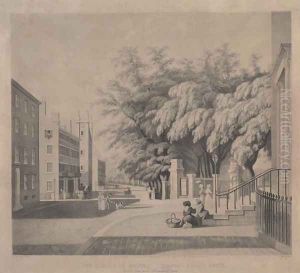Sharp, William Paintings
William Sharp was a Scottish writer, poet, and biographer who perhaps is more famously known under his pseudonym, Fiona Macleod. He was born on September 12, 1855, in Paisley, Renfrewshire, Scotland. He was educated at the University of Glasgow, where he developed a deep love for literature and began his career as a writer. Sharp was a part of the Celtic Revival, a movement that sought to promote and celebrate the Celtic cultural heritage, especially its mythology and folklore.
Sharp's work as a writer was incredibly diverse, and he authored many volumes of poetry, literary biographies, critical works, and during the latter part of his career, mystical and romantic fiction, which he published under the name Fiona Macleod. This alter ego allowed Sharp to explore themes and perspectives that were distinct from his masculine identity, and the works published as Fiona Macleod were characterized by a lyrical and passionate nature, often focusing on the inner lives and spirituality of women.
Despite his success as Fiona Macleod, Sharp's true identity was a closely guarded secret during his lifetime. Only a few intimate friends knew the truth, and to the general public and literary world, Fiona Macleod was a separate and mysterious figure. His wife, Elizabeth Sharp, played a significant role in maintaining the facade, even going so far as to write letters on behalf of Fiona Macleod.
Sharp's health was never robust, and he often traveled to warmer climates in search of relief from his ailments. He died on December 12, 1905, in Sicily, Italy, after a long struggle with illness. After his death, his wife revealed the secret of Fiona Macleod, ensuring that both his name and his alter ego's would be remembered in literary history. Sharp's work, particularly the writings of Fiona Macleod, left a lasting mark on the Celtic literary landscape and contributed significantly to the Celtic Revival of the late 19th and early 20th centuries.
